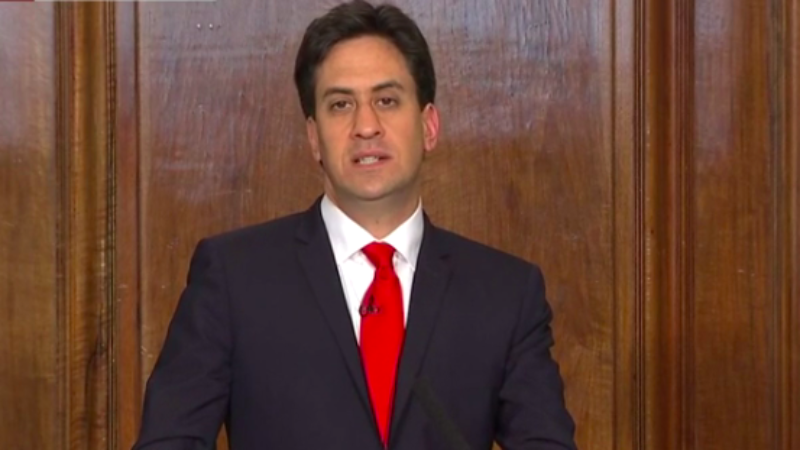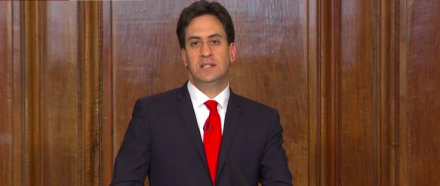

Today we publish our Independent Inquiry report Labour’s Future. It looks at why we lost the 2015 general election and what’s happened since. It has ten messages and three lessons to learn from defeat. It’s a tough read because it’s about the challenges Labour faces. But its optimistic. We can be ambitious. We have the ability to change and shape our party and build a new election winning coalition. We need the confidence to learn the lessons of defeat and think big and bold.
Back last summer we worked with The Campaign Company and published some of our messages on Labour List. Many of those who responded disputed our findings on the voters views on reducing spending. It generated a lively debate, but it also revealed Labour’s lack of ambition. The argument was reduced to being about spending or not spending. We need political renewal that is about reform, institutional change and innovating new ways of doing things. There is no future for Labour in doing more of the same when it has already failed.
The evidence revealed a party becoming progressively more out of the touch with the electorate. In England and Wales, pragmatic minded voters abandoned Labour because they did not trust us on the economy. On a series of crucial issues such as welfare, public services, immigration and business, Labour in both 2010 and 2015 had marched away from the views of the country. The party has become as toxic in the south of England as the Tories are in the north. Amongst the over 60s it is the most toxic party. Socially conservative working class voters who value family, work, fairness, and national security are the most likely to have deserted the party.
In Scotland voters are more ‘progressive’ but they do not inhabit a completely different universe. Many share the same concerns. An anti-austerity message has more potency in Scotland than in England and Wales, but it still remains a minority position and did not appear to be the main reason for the SNP’s electoral success. Despite Labour’s electoral meltdown it is still the least toxic party in Scotland. The party has some hope of recovery but it needs to recognise that identity underpins the SNP’s success. The SNP succeeded in attaching patriotism to ‘progressive’ values.
In the general election campaign, voters unambiguously heard a clear message about economic stability from the Tory campaign, but were much less certain about Labour’s message. Whatever Labour thought its message was, the public was either unclear about it, or saw it as being about protecting public services.
Finally we looked at the results of the 5 May elections this year. Has Labour been learning the lessons of defeat and making progress? The results suggest not. The Party now faces a monumental challenge in Scotland. In England and Wales it is on life support. Where Labour wins it wins well, but there are no signs of resurgence in the areas it needs to build a winning coalition.
These findings offer three lessons. Firstly, the electorate is both economically radical and fiscally conservative. But fiscal responsibility trumps economic reform. If people do not trust Labour with their taxes they will not support it however much they might agree with its economic policies. Second, identity and belonging drive politics. Culture and values have increasing salience. In Scotland Labour has been marginalised as the party of Westminster. In England UKIP appeals to Labour voters with its conservative values.
The third lesson is that Labour is becoming an exclusive cultural brand. It is now largely a party of progressive, social liberals who value abstract, universalist principles such as equality, sustainability and social justice. It is losing connection with the majority of voters who are either pragmatists in their voting habits or who hold socially conservative values of family, work, security, and fairness.
These are the challenges we face. We ignore them at our peril. Recognising them is the beginning of the change we need to make Labour fit for the future. It doesn’t mean adopting the Conservatives’ approach. It means building a vision of the country based on the values of family, work, fairness and decency. These are Labour values and they resonate with the British population in a way Tory values don’t. Success means broadening out our politics in order to reconnect with the whole country, not just segments of it.
Our report offers the party evidence of its need for a period of rethinking, change and renewal. We must look honestly at the situation we are in and ask ourselves where we go from here. Labour’s future depends on the answers we all come up with.
Jon Cruddas is MP for Dagenham and Rainham, was Labour’s Policy Co-ordinator up to 2015, and today publishes his independent inquiry into why Labour lost the election




More from LabourList
Ashley Dalton resigns as health minister for cancer treatment
Paul Nowak column: ‘Labour must focus on the basics’
‘Labour’s two-child cap victory rings hollow while asylum-seeking children remain in poverty’